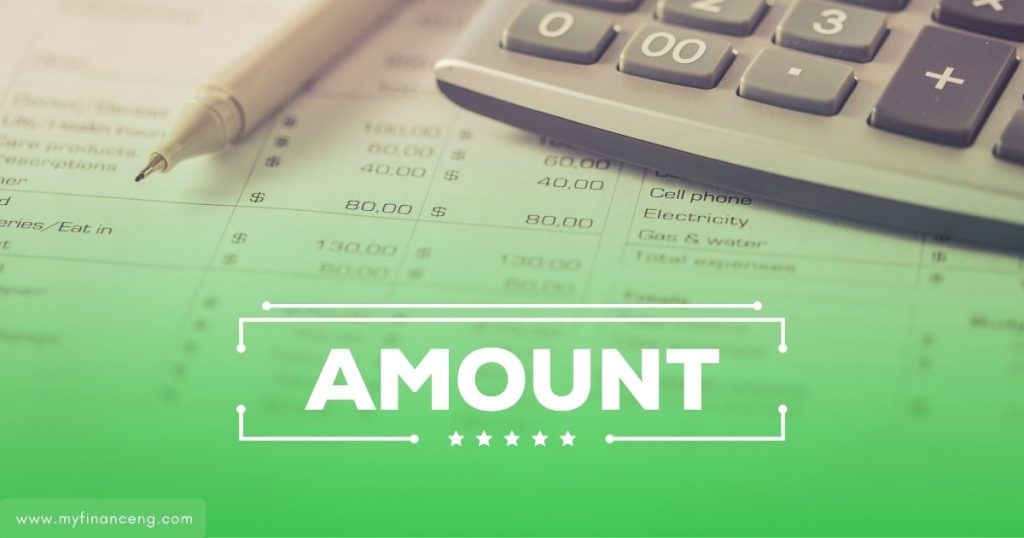Introduction
Learn how do bail bondsman make money in the legal system, from charging bail premiums to managing risks. Discover the role of bail bondsmen, their earnings, and how they influence the court process.
The bail bonding system is a vital element of the law and is essential in allowing arrested persons to have their freedom pending trial as long as they can meet the financial requirements.
In this post, we will look at how bail bondsmen earn a living, their profession’s danger, and their role in the legal process.
What is a Bail Bondsman?
A bail bond agent, also known as a bail bondsman, is a person or company that pledges money or property as bail for the appearance of a defendant in court.
That’s because the bulk of their business is lending to arrested people and looking to make bail so they can be released while awaiting trial.
Meaning and Role in the Legal System
Bail bondsmen provide a service whereby defendants can pay a portion of their bail in exchange for release. They typically do so by imposing a fee — most often 10% to 15% of the total bail amount, which is nonrefundable. This charge is the bail bond premium.
How Do You Get Out of Jail?
And, of course, when people are arrested, the court sets a bail amount, guaranteeing that the defendant will show up for his court dates.
If the accused can’t cover the bail amount in its entirety, they enlist the help of a bail bondsman. The bail bond agent promises the court to pay the full bail amount if the defendant does not go to court.
Knowing the Bail System
Bail is a confusing process that begins at arrest and takes many steps to reach its resolution in court.
How Bail Is Set
Bail is ordinarily set according to various factors, including minimal bail schedules, the severity of the alleged crime, the defendant’s previous criminal record, danger to the community, and Risk of flight. A judge or magistrate decides this amount based on these factors.
Different Categories of Bail: Cash, Property, and Surety Bonds
Some other types of bail are more expensive and have more procedural hoops to jump through. That’s why it’s called cash bail – the entire amount must be put down in cash. To Be Released on Property Bail?
One combination of the two is surety bail, which a bail bondsman posts, meaning a third party will guarantee the entirety of the bail through a fee.
How Bail Bondsmen Operate
Bail bondsmen are governed by law, but they can use the ability to set pricing and run their businesses as they see fit to lure customers.
The Bail Bondsman’s Role in the Bail Process
The bondsman’s function is to pay the bail so you can be free. They assume the burden of ensuring the defendant shows up in court. In return, the defendant or the defendant’s family deposits a bond fee with the bondsman.
The Dangers to Bail Bondsmen
Bounty Hunters Bail bondsmen have Risk in whatever they do. The bail bondsman may have to pay the full amount if the defendant does not show up for court, which is potentially ruinous! That’s why most bondsmen do the things to mitigate that Risk.
The Bail Bond Agreement

A bail bond contract is a legal contract between a bail bondsman and the person (indemnitor) signing the bail bond.
Mutual Agreements Between the Bail Bond Agent and Defendant
The bail bond agreement simply spells out the total bail amount, the percentage fee, and what is expected of the defendant regarding appearing on scheduled court dates. The bail may also involve collateral in real estate or other assets to guarantee the bail bondsman’s security.
The Defendant’s Financial Responsibilities
The surety remunerates the bail bondsman for the nonrefundable fee. The defendant adds a risk of further financial penalties if they do not fulfill their part (e.g., appear at trial).
How Do Bail Bondsman Make Money?
Like every business, a bail bondsman must make money.
The Bail Premium: What Is It and How Much Does It Cost?
What is a Bail Premium? It’s typically between 10% and 15% of the full bail amount. So, for example, with a bail amount set at $10,000, the defendant or a family member would pay the bondsman $1,000 to secure the defendant’s release.
Other Costs that Bail Bondsmen Pass on
Bail bond companies can charge additional fees for collateral arrangements and administrative fees. Some may also accrue interest on installment payments.
How Profitable Are Bail Bonds: Is Bail Bonding a Good Business?
Monitoring for Risk Although it is a potentially lucrative business, bail bonding does carry a few risks. Bail bondsmen make their money mainly from the fees they charge, but the business can be volatile, including the Risk of clients fleeing.
The Risk Factor for Bondsmen
The risks of operating a bail bonding business are high, especially if a defendant skips bail.
The Bail Bonding Risks: What Happens if the Defendant Doesn’t Show Up?
If the defendant runs away from the bail, the bondsman has to pay the entire bail to the court unless they can otherwise find and return the defendant to the court.
How Bail Bondsmen Limit Their Risk
Bondsmen mitigate risks in several ways, including taking collateral from the defendant, considering the likelihood that a defendant will miss court, and hiring bounty hunters to apprehend fugitives.
What are the consequences if a Defendant doesn’t Appear in Court?
The Impact of a Missed Court Date When you fail to appear in court, the repercussions are disastrous, especially for the defendant and the bondsmen.
The Legal Ramifications for the Accused
The related issue is the defendant is looking at the possible failure to appear, and capias may come into play. This has resulted in higher bail levels and the potential for jail time.
The Financial Impact on the Bail Bondsman
When the defendant bails and does not return, the bondsman is usually liable for the full bail amount, which can mean huge company losses.
How the Bail Bondsman Collects Your Set Bail Amount

Bail bondsmen resort to aggressive collecting tactics to cut their losses on the failed bail.
How Do Bail Bondsmen Get Their Money Back?
If a defendant fails to appear, the bondsman can seize the defendant’s assets or take them to court to collect the amount owed.
Bail Recovery Agents (Bounty Hunters)
Bounty hunters — often called bail enforcement agents — hunt down and arrest fugitives who have skipped bail. These are individuals who the bondsmen hire to recover what they lost.
How Bail Bondsmen Are Paid
Bail bondsmen get paid based on what they charge the defendant, but the payment process differs depending on the stipulations of the party writing the bond.
Commission and Fees Breakdown
Bail bondsmen usually charge a fee for their services—a fee that is not refunded if the offender attends their court date. Collateral-related services, including but not limited to handling, tracking, or administrative services, will be subject to additional fees.
How Do Bail Bondsmen Get Paid for Their Services
After the defendant is released, the bail bondsman is paid upfront or on a payment plan. The fee is the money the bail bondsman makes for their services.
Do Bail Bondsmen Need a License?
Bail bondsmen generally have to meet particular record or licensing requirements.
The Licensing Procedure and Criteria
Bail bondsmen must be licensed in the state where they practice, which may require training, passing a background check, and an examination.
Protection For Bail Bondsman and ClientsProtected by Licensing
The purpose of obtaining a license is to ensure that the bondsman operates within the law and with integrity, protecting clients and the bondsman.
Importance of the Reputation of a Bail Bondsman
Credibility and reputation are some of the most critical drivers of a business’s success.
The Impact of Reputation On a Bail Bondsman’s Business
A good reputation can bring in a regular customer base, and a bad reputation can inhibit new clients.
Building Trust with Clients
Trustworthy bail agents establish trust and offer value by delivering open-ended, honest assistance and reasonable quotes.
Bail Bonding: Poli

Depending on their state, licensing requirements may vary, but bail agents are held to an ethical standard in every state.
Laws and Statutes for Bail Bondsmen
The regulations concerning how much can be paid in collateral and what type can be used in the bail bonds business vary by state law.
Ethical Dilemmas: Fees, Clients
Bail bonds must be upfront about charges and not prey on desperate people in difficult times.
The Role of Technology in Bail Bonding
Technology is playing an increasing role in the bail bond industry to help operations and mitigate risks.
These Are the Ways Technology Is Disrupting the Housing Industry
From digital monitoring to using online payment systems, technology is helping bail bondsmen work more efficiently and make fewer mistakes.
Computer Software and Tracking Devices that Bail Bondsmen Use
Many bondsmen use fancy software to keep track of their clients and money and ensure people show up in court.
The Future of Bail Bondsmen
The trade is changing, shaped by shifts in the law and public attitudes toward the bail system.
New Laws and Bail Bonds Trends
As bail reforms continue to take formal and informal hold nationwide, bail agents must adjust their tactics based on newly emerged legal and bond-underwriting constraints and the influence of alternatives to cash bail.
Alternative Bail Systems Gain Traction
Innovative bail options, like risk assessments and release on recognizance programs, are also transforming the historic function of bail bondsmen.
How do bail bondsmen profit in various states?
State-by-state laws affect how bail bondsmen do business nationwide.
Different Bail Bond Practices Throughout the US
The rules for bail bonds can differ quite a lot from state to state, and some states make it more challenging to get a bail bondsman or can provide citizens with other alternatives.
Effects of State Law on Bail Bonds Companies
State regulations can curtail or open up how bail bondsmen make money, impacting their bottom line.
How Do Bail Bondsmen Affect the Legal System?
Bail bond agents are a cornerstone of the court system that allows defendants to be released on bail and make sure to go to court.
How Bail Bondsmen Impact the Court System
In turn, the provision of bond services allows defendants to remain at large between arrest and trial and keeps things circulating in the justice system.
What They Do to Help Get Defendants to Trial
Bail bondsmen are essentially guarantors, ensuring that defendants appear at their hearings in return for being released.
Conclusion
Bail bond agents help facilitate a vital function to help citizens in need of bail, mitigating Risk and reward. Their money is made from knowing the legal system and managing Risk while providing an invaluable service for those driven by the wheels of justice.

